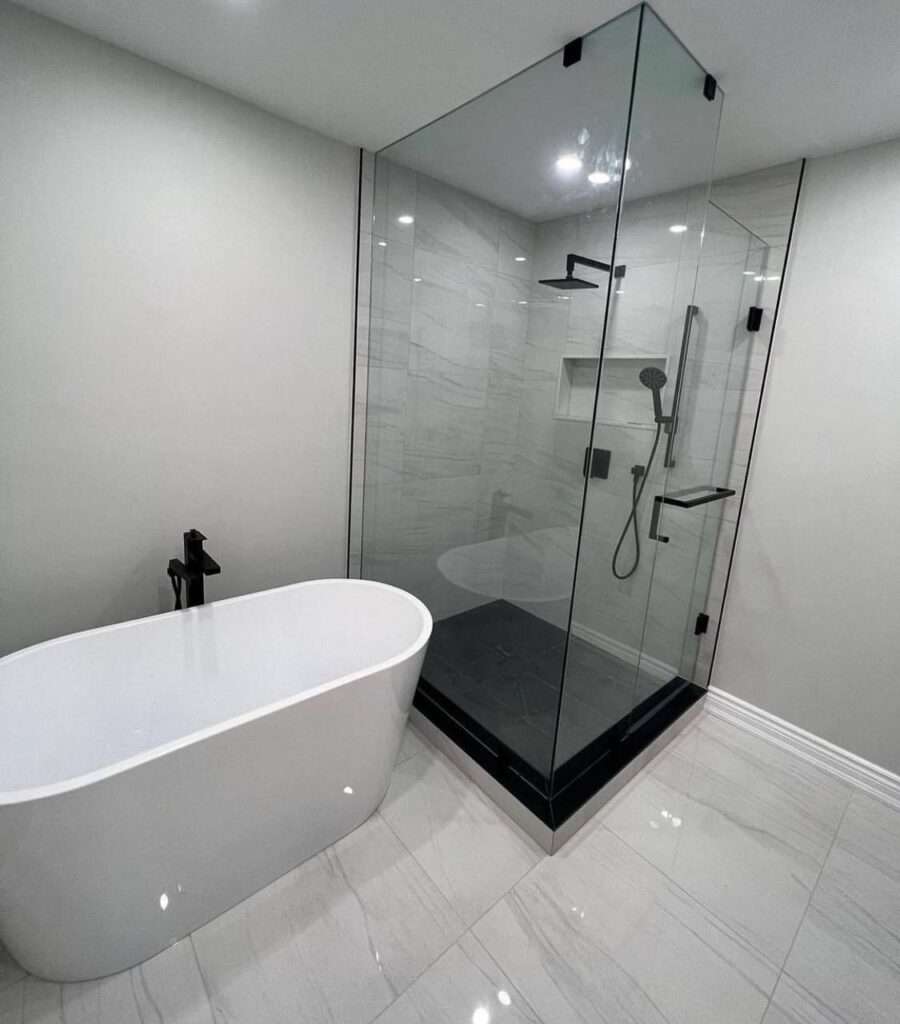Tile installation is a popular choice for enhancing the aesthetics and functionality of various spaces in your home, such as bathrooms, kitchens, and entryways. When it comes to tile installation, homeowners often face the decision of whether to take on the project themselves (DIY) or hire a professional. Both approaches have their advantages and challenges. Here’s a comprehensive guide to help you decide which option is best for your tile installation project.
DIY Tile Installation
Advantages
1. Cost Savings One of the most significant advantages of DIY tile installation is the potential cost savings. By doing the work yourself, you can avoid labor costs, which can be substantial.
Tip: Calculate the cost of materials, tools, and any necessary equipment rental to determine your total savings.
2. Personal Satisfaction Completing a tile installation project yourself can be highly rewarding. The sense of accomplishment and pride that comes with transforming a space with your own hands is unparalleled.
Tip: Take your time and enjoy the process, as this can enhance the overall satisfaction of the project.
3. Flexibility DIY projects allow you to work at your own pace and on your own schedule. This flexibility can be particularly beneficial if you have other commitments or prefer to spread the work out over several days or weekends.
Tip: Create a detailed plan and timeline to ensure you stay on track and complete the project within a reasonable timeframe.
Challenges
1. Skill and Experience Tile installation requires a certain level of skill and experience to achieve a professional finish. Mistakes such as uneven tiles, incorrect spacing, and poor grout application can detract from the overall appearance and durability of the installation.
Tip: Watch tutorials, read guides, and practice on a small area before starting the main project.
2. Time-Consuming DIY tile installation can be time-consuming, especially if you are inexperienced. The process involves several steps, including surface preparation, tile cutting, laying, and grouting, all of which require attention to detail.
Tip: Be prepared for the project to take longer than anticipated, and don’t rush any steps.
3. Tool Investment Installing tiles requires specific tools, such as tile cutters, trowels, and grout floats. While some tools can be rented, others may need to be purchased, adding to the overall cost of the project.
Tip: Consider renting tools or borrowing from friends or family to reduce costs.
Professional Tile Installation
Advantages
1. Expertise and Experience Professional tile installers have the expertise and experience to handle all aspects of the installation process. They can ensure a high-quality finish with precise cuts, even spacing, and proper grout application.
Tip: Check references and reviews to find a reputable installer with a proven track record.
2. Time Efficiency Professionals can complete the job more quickly and efficiently than a DIY enthusiast. Their experience allows them to work faster and more effectively, minimizing disruption to your home.
Tip: Schedule the installation during a time that is convenient for you to minimize inconvenience.
3. Access to Tools and Materials Professional installers have access to specialized tools and high-quality materials that may not be readily available to DIYers. This can result in a more durable and aesthetically pleasing installation.
Tip: Discuss the types of materials and tools the installer will use to ensure they meet your expectations.
4. Warranty and Insurance Many professional tile installers offer warranties on their work, providing peace of mind that any issues will be addressed. Additionally, they are often insured, which can protect you from liability in case of accidents or damage during the installation.
Tip: Verify the installer’s warranty and insurance coverage before hiring them.
Challenges
1. Higher Cost The most significant disadvantage of hiring a professional is the cost. Labor fees can add up, especially for large or complex projects.
Tip: Obtain multiple quotes from different installers to ensure you get a fair price.
2. Less Control Hiring a professional means relinquishing some control over the project. While you can provide input and specifications, the final execution is in the hands of the installer.
Tip: Communicate your vision and preferences clearly with the installer to ensure the final result aligns with your expectations.
3. Scheduling Finding a professional with availability that fits your schedule can sometimes be challenging. High-demand professionals may have long lead times, which can delay your project.
Tip: Plan ahead and book the installer well in advance to avoid scheduling conflicts.
Making the Decision
When deciding between DIY and professional tile installation, consider the following factors:
- Budget: Assess your budget and determine if you can afford professional installation or if you need to save money by doing it yourself.
- Skill Level: Evaluate your skill level and experience with tile installation. If you are confident in your abilities, DIY might be a viable option. Otherwise, hiring a professional can ensure a better outcome.
- Project Complexity: Consider the complexity of the project. Simple, small-scale installations may be manageable for a DIYer, while large or intricate projects might be best left to professionals.
- Time Availability: Reflect on the time you have available to dedicate to the project. If you have a busy schedule, hiring a professional can save you time and hassle.
- Quality Expectations: Think about the level of quality you want for the finished project. Professional installers can typically deliver a higher-quality result.
Conclusion
Both DIY and professional tile installation have their pros and cons. DIY installation can save money and provide personal satisfaction, but it requires skill, time, and the right tools. Professional installation ensures expertise, efficiency, and high-quality results but comes at a higher cost. By carefully considering your budget, skill level, project complexity, time availability, and quality expectations, you can make an informed decision that best suits your needs and ensures a successful tile installation.





